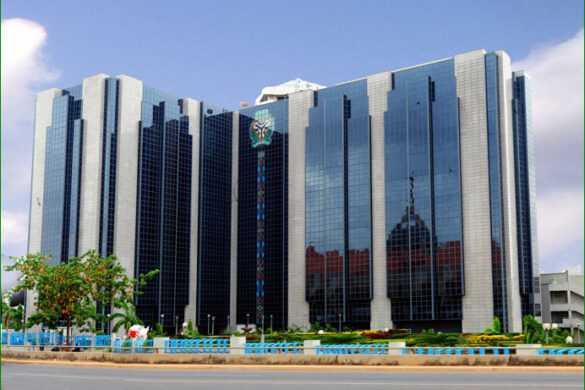Nigerian Banks Face Profit Pressures and Rising Loan Risks Amid Prolonged CBN Forbearance.
- Home
- Nigerian Banks Face Profit Pressures and Rising Loan Risks Amid Prolonged CBN Forbearance.

Nigerian Banks Face Profit Pressures and Rising Loan Risks Amid Prolonged CBN Forbearance.
As Nigerian banks prepare for the second half of the financial year, concerns are mounting over the long-term impact of the Central Bank of Nigeria’s (CBN) continued regulatory leniency, known as forbearance. Initially introduced to shield the financial sector from the fallout of the COVID-19 pandemic and ongoing economic instability, the policy is now being criticized for its unintended consequences—falling profits, shrinking capital reserves, and a potential rise in non-performing loans (NPLs).
What Is CBN’s Forbearance Policy?
In response to the 2020 economic crisis, the CBN implemented temporary relief measures for banks, including relaxed loan classification, delayed provisioning, and flexibility in loan restructuring. These steps helped stabilize the sector by preventing a wave of defaults. However, years later, many of these reliefs remain in place, especially in key sectors like oil and gas, agriculture, and manufacturing.
Analysts argue that these measures, while helpful at the time, are now obscuring real financial risks. Rising inflation, currency devaluation, and interest rate hikes are stressing both borrowers and lenders.
“Regulatory forbearance helped banks during the pandemic, but today it’s masking deeper issues,” said Ifeanyi Eze, a financial analyst in Lagos.
Impact on Profitability
By delaying recognition of bad loans and suspending stricter capital requirements, forbearance allowed banks to report stronger short-term results. However, many restructured or at-risk loans are still recorded as performing, even when the chances of repayment are low.
“Banks are accumulating risk without proper provisioning. When defaults hit, the impact on profits could be significant,” said Bamidele Ogunbanjo, a consultant at Financial Derivatives Company.
Though major banks posted decent profits in 2024, analysts warn that rising credit losses and the gradual rollback of forbearance measures will pressure earnings in the second half of 2025. Fitch Ratings has also warned that ending the policy could trigger a spike in sector-wide NPL ratios.
Weakening Capital Buffers
Another concern is the erosion of banks’ capital strength. Forbearance allows banks to delay setting aside funds for potential losses, giving a false sense of stability. In an economy vulnerable to oil shocks, exchange rate volatility, and political risks, robust capital buffers are essential.
Adding to the challenge is the CBN’s new directive requiring banks to raise their minimum capital significantly within the next two years. This push for recapitalization comes at a time when investor interest may be waning due to weaker bank fundamentals and persistent economic uncertainty.
“Recapitalization is important, but banks may struggle to attract fresh capital, especially with low returns and currency risk,” noted Ayo Shonubi, a portfolio manager.
He added that this might force banks to prioritize survival over growth, reducing lending and potentially slowing economic recovery in key sectors.
Hidden Risks and Rising NPLs
The most immediate threat may be a sharp increase in bad loans. As of the end of 2024, the reported industry NPL ratio was just below the regulatory ceiling of 5%. However, experts believe this figure underrepresents the real situation, especially in high-risk sectors like oil and gas, real estate, and power.
“Many of these loans are only viable on paper due to regulatory leniency. If stricter rules return or another shock hits, we could see a surge in defaults,” said Eze.
Growing credit risk could also shake investor confidence, particularly among foreign investors wary of regulatory uncertainty and currency fluctuations.
What Comes Next?
The CBN is in a difficult position—maintaining forbearance supports economic growth but also delays the recognition of systemic risks. Experts are calling for a phased withdrawal of the policy, increased transparency, and stronger oversight to guide banks through the transition.
“We need a structured exit, with better risk controls and support for banks to rebuild capital,” Shonubi advised.
Others suggest a targeted approach—continuing support for sectors still recovering while applying tighter rules elsewhere.
In the meantime, banks are expected to face tighter margins, higher provisions, and more regulatory pressure. Some may consider mergers or explore non-lending revenue sources to cope with reduced earnings from interest income.
Conclusion
The CBN’s forbearance policies helped Nigeria’s banking sector weather past economic storms, but their extended use now presents serious risks. With shrinking profits, fragile capital levels, and a looming surge in loan defaults, the industry is at a crossroads.
A clear, measured exit plan backed by solid supervision and realistic provisioning will be vital to maintaining stability and restoring investor confidence. Until then, banks remain vulnerable to domestic and global shocks, with underlying risks threatening to derail a still-fragile recovery.

Content & Editorial Manager – Leads the creation, review, and publication of high-quality news and media content. She ensures that all editorial work reflects the organization’s standards of accuracy, professionalism, and relevance, while also engaging and informing the audience.
As the key driver of TokinPoint Media LTD’s editorial voice, the manager oversees content planning, assigns tasks to writers or editors, enforces deadlines, and ensures consistency across all platforms. She also plays a strategic role in aligning content with audience interests and search engine optimization (SEO) best practices.
Discover more from TokinPoint
Subscribe to get the latest posts sent to your email.
- Share
Faith Kegh
Content & Editorial Manager - Leads the creation, review, and publication of high-quality news and media content. She ensures that all editorial work reflects the organization’s standards of accuracy, professionalism, and relevance, while also engaging and informing the audience.
As the key driver of TokinPoint Media LTD's editorial voice, the manager oversees content planning, assigns tasks to writers or editors, enforces deadlines, and ensures consistency across all platforms. She also plays a strategic role in aligning content with audience interests and search engine optimization (SEO) best practices.
